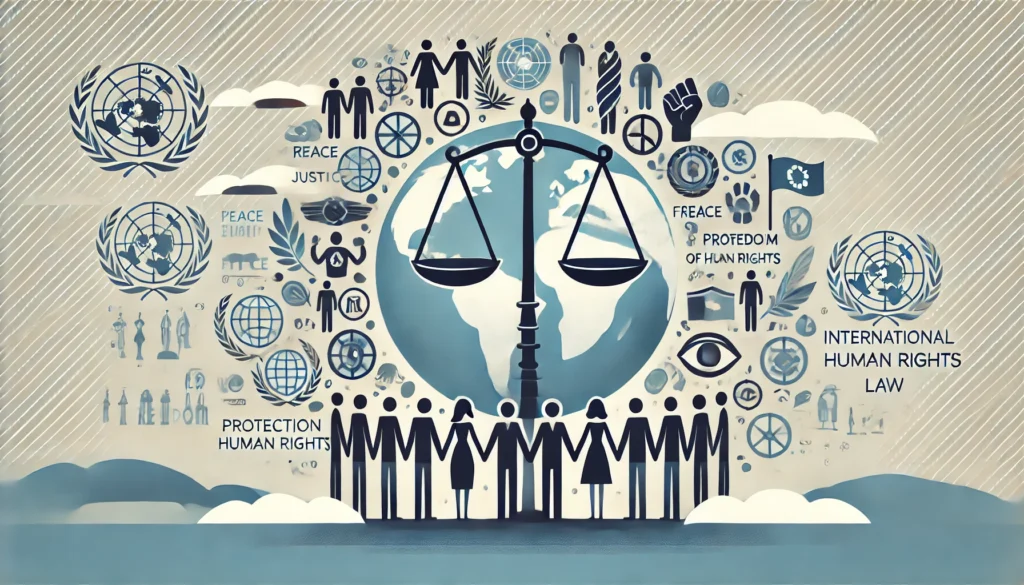Published on: 14th September 2024
Authored by: Anushri Joshi
Law College Dehradun, Uttranchal University, Dehradun
Introduction
Arbitral institutions are the cornerstones of the international arbitration regime, providing an inexpensive, unbiased, and effective mechanism for transnational dispute resolution. The International Chamber of Commerce (ICC), [1]with its comprehensive dispute resolution methodology and esteemed International Court of Arbitration, arrogances as a paragon in this arena. The ICC’s scrupulous Arbitration Rules, coupled with its gigantic network of legal practitioners, generate an environment encouraging to assured and equitable dispute resolution. Through diverse committees and working groups, the ICC unceasingly hones its practices, ensuring alignment with the eternally-embryonic landscape of international trade.
The American Arbitration Association (AAA), [2]with its reflective stimulus on domestic arbitration, plays a vital role globally. The AAA’s International Centre for Dispute Resolution (ICDR) administers an eclectic array of international cases, offering bespoke services for cross-border disputes. Their meticulously designed rules and procedures, combined with extensive resources and seasoned arbitrators, guarantee fair and equitable resolutions for complex, high-stakes arbitrations. Concurrently, the London Court of International Arbitration (LCIA) is renowned for its pliable, party-centric approach. The LCIA’s rules empower parties to tailor proceedings to their specific needs, while its administrative framework and diverse panel of arbitrators ensure access to unparalleled expertise. The LCIA’s commitment to innovation is evident in its ongoing efforts to update its rules, reflecting contemporary practices and emerging trends in international arbitration. The distinct contributions of these institutions, through their unique rules, procedures, and administrative support, are integral to the international arbitration edifice, providing a reliable framework for resolving disputes and navigating the complexities of global commerce.
Roles and Functions of Arbitration Institutions
Arbitration institutions are indispensable pillars in the domain of dispute resolution, fastidiously facilitating arbitral proceedings through meticulous protocols and specialized expertise. These institutions are architected to imbue impartiality, safeguard procedural rectitude, and cultivate efficient adjudication of conflicts peripheral to the conventional judicial apparatus. Their roles and functions are vivacious in preserving the sanctity of arbitral agreements and perpetuation the rule of law in the resolution of controversies.
- Administration of Arbitral Proceedings: Arbitration institutions preside over the arbitral process, furnishing a structured framework for the expeditious resolution of disputes. They oversee procedural facets, ensuring conformity to established norms and chronologies. Institutions orchestrate the designation of arbitrators, manage procedural submissions, and supervise hearings and awards, thereby ensuring the seamless progression of arbitrations by agreed-upon protocols.
- Appointment of Arbitrators: A cardinal function of these institutions is the selection of arbitrators. Maintaining rosters of qualified and seasoned arbitrators, they accurately match individuals to cases based on specific prerequisites. This process is designed to guarantee that arbitrators possess the requisite domain knowledge, impartiality, and autonomy essential for equitable adjudication.
- Promulgation of Arbitration Rules and Procedures: Arbitration institutions furnish comprehensive rules and procedures that govern the entirety of arbitral proceedings. These meticulously crafted rules discourse various facets, including the initiation of proceedings, conduct of hearings, and issuance of awards. They ensure fairness, efficiency, and predictability, offering parties a lucid framework for conflict resolution.
- Support and Guidance to Arbitrators: Throughout the arbitral process, institutions offer arbitrators multifarious support, including administrative assistance, legal resources, and logistical backing. They may provide training and development programs to augment arbitrators’ skills and knowledge, ensuring their ability to effectively discharge their duties and render well-reasoned decisions.
- Ensuring Compliance and Enforcing Awards: Arbitration institutions are instrumental in ensuring the enforcement of arbitral awards in alignment with legal norms. They may assist parties in the enforcement process by furnishing requisite documentation and championing the recognition of awards across jurisdictions.
- Facilitating International Arbitration: In the realm of international arbitration, institutions facilitate cross-border dispute resolution by providing a neutral forum and promoting adherence to international arbitral standards. Their services encompass document translation, coordination with local authorities, and the management of complex logistical arrangements, ensuring the efficient resolution of international disputes following global best practices.
- Promoting Arbitration Advocacy and Development: These institutions actively engage in promoting and developing arbitration as a preferred mode of dispute resolution. Through advocacy, they raise awareness about the merits of arbitration and contribute to the evolution of arbitral practices and standards. Participation in research, publication of reports, and hosting of events further advances the field and address nascent issues.
The International Chamber of Commerce (ICC): [3]
Established in 1919, is a leading authority in international trade and dispute resolution. The ICC Court, its arbitral arm, is renowned for its rigorous procedural framework, experienced arbitrators, and commitment to impartiality and transparency. The ICC Rules, regularly updated to reflect evolving commercial practices, are widely recognized as a gold standard in international arbitration. The ICC’s global reach and commitment to harmonizing international trade practices have solidified its position as a vanguard in commercial dispute resolution.
The ICC is governed by four primary bodies: the World Council, the Executive Board, the International Secretariat, and the Finance Committee. These bodies collaboratively ensure the ICC’s strategic direction, operational efficiency, and financial oversight. The ICC’s core functions encompass advocacy, rule-making, and dispute resolution. It advocates for policies that promote global trade and investment, formulates comprehensive guidelines and standards governing international business transactions, and provides mechanisms for resolving disputes between its members through its International Court of Arbitration and other alternative dispute resolution (ADR) services. In sum, the ICC plays an indispensable role in shaping the landscape of international business by advocating for favourable policies, establishing widely respected rules, and offering effective dispute-resolution services.
The London Court of International Arbitration (LCIA):[4]
Instituted in 1892, is a globally honoured institution concentrating in international dispute resolution. The LCIA is governed by a Board of Directors and an Arbitration Court, accountable for supervision the institution’s manoeuvres and guaranteeing adherence to its rules and procedures. The LCIA administers arbitrations under its own 2020 Rules, prominent for their litheness and adaptability, as well as under UNCITRAL (United Nations Commission on International Trade Law.) Rules.
The London Court of International Arbitration (LCIA) sustains an esteemed reputation as a foremost institution for international dispute resolution, contribution a comprehensive array of services squarely premeditated to facilitate the efficient and equitable resolution of multifaceted commercial disagreements. Midst its core functions, the LCIA assumes the meticulous assortment and nomination of neutral arbitrators, ensuring the highest standards of neutrality and expertise. The LCIA adjudicates challenges to arbitrator impartiality and independence, safeguarding the integrity of the arbitral process and perpetuation the principles of fairness and due process. The LCIA proficiently achieves and evidently superintends the expenses associated with arbitration proceedings, promoting cost-effectiveness and predictability.
In light of topical legal modifications in Dubai, the LCIA’s Dubai affiliate (DIFC-LCIA) has been thawed. Nevertheless, this development has not deterred the LCIA from its steadfast obligation to delivering consummate arbitration services globally. The LCIA remnants enthusiastic to providing efficient, confidential, and impartial dispute resolution mechanisms, catering to the miscellaneous needs of international businesses and individuals. The LCIA’s steadfast dedication to excellence has solidified its position as an optimal for determining multifaceted commercial disputes transversely in the globe, grossing the faith and poise of parties seeking fair and equitable consequences.
The American Arbitration Association (AAA):[5]
Established in 1926, it is the world’s leading provider of dispute resolution services. Its International Centre for Dispute Resolution (ICDR) handles a vast array of international cases, offering specialized services for complex cross-border disputes. The AAA-ICDR Rules, known for their flexibility and ease of use, are widely adopted in the global business community. The AAA boasts an extensive network of arbitrators and mediators and is committed to providing cost-effective and efficient dispute resolution services, solidifying its position as a pioneer in both domestic and international arbitration. Governance is structured around the AAA-ICDR Council, comprising over 90 distinguished members from diverse professional backgrounds. The Council oversees various committees focusing on ADR practices, diversity, healthcare, international relations, labour/management, large cases, mediation, construction disputes, nominations, governance, budget, finance, law, and the AAA-ICDR Foundation.
The AAA performs a multitude of essential functions in the field of alternative dispute resolution (ADR). It administers a diverse array of ADR mechanisms, including but not limited to arbitration and mediation. The AAA promulgates comprehensive rules and procedures governing these processes, ensuring fairness and consistency. It maintains a roster of highly esteemed neutrals, including arbitrators and mediators, renowned for their expertise and impartiality.AAA is committed to advancing the field of ADR through educational initiatives, providing comprehensive training programs and workshops for practitioners and parties alike. It actively engages in research to identify best practices and innovative approaches to dispute resolution. The AAA offers valuable advisory services, guiding parties in selecting appropriate ADR strategies and navigating complex procedural matters. It provides comprehensive case management services, ensuring the efficient and effective administration of ADR proceedings.
In accumulation to these core functions, the AAA actively advocates for the use of ADR as a viable alternative to litigation, promoting its benefits through various channels, including publications, conferences, and outreach programs. Through this multifaceted approach, the AAA plays a paramount role in fostering a culture of ADR, facilitating amicable and expeditious resolution of disputes while upholding the principles of fairness, neutrality, and transparency.
The Future Role of Arbitration Institutions in Global Dispute Resolution
In the evolving landscape of global dispute resolution, arbitration institutions are poised to play an increasingly momentous role as arbitral forums adapt to the complexities of transnational commercial interactions and investor-state conflicts. As the arbitral process continues to gain prominence over traditional litigation, these institutions are expected to enhance their procedural frameworks to accommodate novel challenges posed by technological advancements, globalization, and jurisdictional nuances. The refinement of institutional rules and the adoption of erudite case management protocols will be crucial in maintaining the efficacy and impartiality of arbitration. Furthermore, the burgeoning emphasis on transparency and ethical standards will necessitate that arbitration institutions rigorously uphold principles of fairness and integrity while navigating the intricate legal and economic environments of diverse jurisdictions.
As arbitral bodies extend their influence internationally, they will increasingly engage in collaborative initiatives to harmonize procedural norms and establish global best practices. This expansion is likely to be characterized by the proliferation of bespoke arbitral regimes tailored to sector-specific or regional needs, thereby enhancing the accessibility and adaptability of arbitration. Institutions will be tasked with fostering innovation in dispute resolution methodologies, leveraging advancements such as artificial intelligence and blockchain technology to streamline processes and enhance procedural efficiencies. The future trajectory of arbitration institutions will thus be marked by their ability to integrate emerging technologies, uphold rigorous standards of justice, and effectively address the dynamic needs of the globalized market.
Key Case Laws
- Parsons & Whittemore Overseas Co. v. Société Générale de L’Industrie du Papier(RAKTA) [6]
This case tangled the enforcement of an ICC arbitration award in the United States, demonstrating the ICC’s protagonist in international arbitration and the enforceability of its awards under the New York Convention.
- Dow Chemical France v. Isover-Saint-Gobain[7]
This case is prominent for its discussion on the doctrine of a cluster of companies in ICC arbitration, emphasizing the ICC’s litheness in dealing with multifaceted corporate edifices in arbitration proceedings.
- C v. D [8]
This English Court of Appeal case accentuated the LCIA’s role in determining the proper law overriding an arbitration agreement, buttressing the LCIA’s contribution to the predictability and solidity of international arbitration.
- Lesotho Highlands Development Authority v. Impregilo SpA [9]
This case beforehand the House of Lords deliberated the LCIA’s arbitration rules and the implementation of arbitration awards, emphasising the status of the LCIA’s bureaucratic rules in complex international disputes.
- Mitsubishi Motors Corp. v. Soler Chrysler-Plymouth, [10]
This momentous U.S. Supreme Court case indorsed the enforceability of arbitration agreements under the AAA rules in international commercial contracts, prominence the AAA’s significant protagonist in facilitating cross-border arbitration.
- Howsam v. Dean Witter Reynolds, [11]
The US Supreme Court scrutinised the scope of arbitrability under AAA rules, accentuating the AAA’s role in resolution of disputes apropos the construal of arbitration clauses.
Conclusion
In precis, arbitration institutions such as the International Chamber of Commerce (ICC), the London Court of International Arbitration (LCIA), and the American Arbitration Association (AAA) epitomize the zenith of adjudicative prowess in the realm of alternative dispute resolution. These venerable bodies oblige as arbitral lodestars, respectively precisely constructing an idiosyncratic operational framework tailored to the exigencies of international and domestic commercial disputes. The ICC, with its rich heritage and global influence, stances as an epitome of procedural efficiency and juridical proficiency, facilitating complex disputes with a tactical emphasis on international harmonization. The LCIA, notorious for its pledge to neutrality and bureaucratic novelty, epitomizes a judicious intermingling of tradition and modernity, fostering a pragmatic yet equitable resolution of contentious matters. The AAA’s extensive network and comprehensive institutional resources emphasise its role as a paragon of accessible and effective arbitration in the American milieu. Apiece institution’s nuanced tactic to arbitration accentuates an obligation to delivering justice in a manner that transcends meagre proceduralism, embodying ethics of fairness, confidentiality, and expediency. Their corresponding contributions to the arbitration scenery not only enhance the efficacy of dispute resolution but fortify the rule of law in an increasingly interconnected global economy. Per se, the roles and functions of these esteemed institutions are crucial to the advancement of arbitration as a preeminent apparatus for determining multifaceted disputes.
References
[1] International Chamber of Commerce (ICC): https://iccwbo.org/dispute-resolution-services/accessed 19July,2024
[2] The American Arbitration Association-The International Centre for Dispute
Resolution (AAA-ICDR): https://www.adr.org/ accessed 19July,2024
[3] International Chamber of Commerce (ICC): https://iccwbo.org/dispute-resolution-services/accessed 20 July,2024
[4] The London Court of International Arbitration (LCIA): https://www.lcia.org/ accessed 19July,2024
[5] The American Arbitration Association-The International Centre for Dispute
Resolution (AAA-ICDR): https://www.adr.org/ accessed 20 July,2024
[6] 508 F.2d 969 (2d Cir. 1974)
[7] 110 J.D.I. (Clunet) 899 (1983)
[8] [2007] EWCA Civ 1282
[9] [2005] UKHL 43
[10] Inc. 473 U.S. 614 (1985)
[11] Inc. 537 U.S. 79 (2002)




